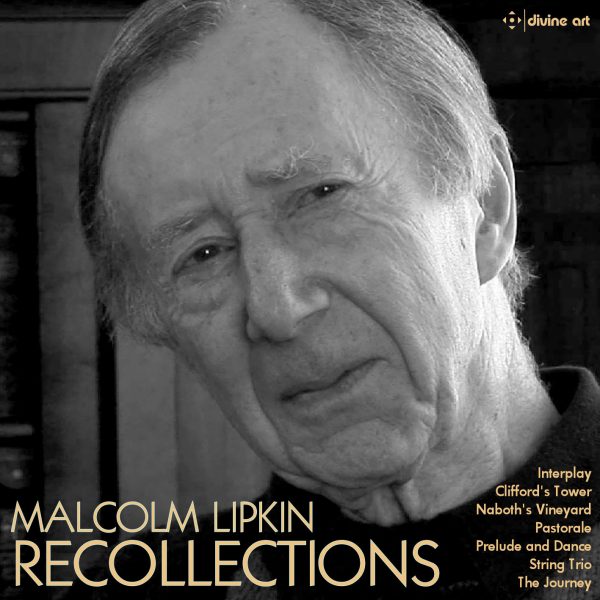British Music Society
There are many British ‘lost composers’ of the 20th century, several born between the two world wars, who even after an encouraging start fell out of favour, or out of fashion, in their later years. Although Malcolm Lipkin (1932 – 2017) to some extent fits this pattern, he is fortunately not to be so described with complete accuracy.
During the fifties and sixties he enjoyed a reasonable number of performances, both orchestral and chamber music, and commissions continued to be received and met into the seventies, eightiesandbeyond. His early work was fundamentally tonal, but a turning-point came with his First Symphony Sinfonia di Roma (1958 – 1965) which emerged as atonal, if freely so and certainly not serial; the extended period of its composition suggests such a radical shift, and the mood is darker.
The present CD’s repertoire includes three works recorded originally on and now remastered from a 1986 Hyperion LP, Lipkin’s first significant appearance on record. The major work of these three, arguably of the whole CD, is Clifford’s Tower, commemorating a massacre in 12th Century York of the city’s Jewish population. The mood is several degrees darker than that of the earlier symphony, yet lightened in the concluding Hymn to Peace and it reportedly made a deep impression at its 1980 Cheltenham Festival premiere by the Nash Ensemble, responsible also for the later recording.
From the same source comes the short and attractive Pastorale (1964) for horn and string quintet in the composer’s reduced arrangement and the String Trio (1963/4) in four concise and well-characterised movements. Both of these works were composed at the Finzi family home at Ashmansworth.
For the remaining works we move on to the seventies and eighties, first for Interplay commissioned by Carl Dolmetsch for his ensemble: treble recorder, viola da gamba [here replaced by cello] and harpsichord, plus percussion carefully chosen and discreetly used to blend in with the rest. From the following decade comes Naboth’s Vineyard (1986) commissioned by John Turner for a similar grouping of treble, tenor and bass recorders with cello and harpsichord, each protagonist in the violent Biblical story being associated with one of the participating instruments.
The Prelude and Dance (1887) is Lipkin’s personal tribute to Jacqueline du Pré, reflective of the cellist’s courage in the face of crushing disability.
Another tribute is The Journey (2016) to John McCabe, marked Intenso, for solo recorder and almost Lipkin’s last work before his own journey ended.
Exemplary performances throughout, and an excellent overall view of the composer’s distinctive style and attributes.
@divineartrecordingsgroup
A First Inversion Company
Registered Office:
176-178 Pontefract Road, Cudworth, Barnsley S72 8BE
+44 1226 596703
Fort Worth, TX 76110
+1.682.233.4978












